From 5-7 September 2016 the GIScience Heidelberg Group hosted a summer school within the collaboration and exchange project 3D-TAIGER (’Multi-Source 3D Geoinformation Extraction for Improved Management of Forest and Natural Hazards – Collaboration between TAIwan and GERmany’).
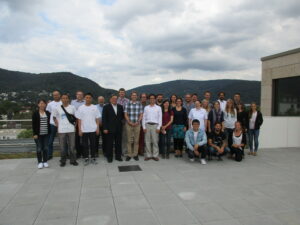
The summer school is a follow-up of the kickoff meeting in Tainan in April this year. The first day consisted of a workshop with public presentations by high-ranking speakers working on 3D geodata analysis in science and industry. After the well-attended session was opened by Bernhard Höfle and Dean Prof. Linti, Prof. Wu and Prof. Wang from National Cheng Kung University (NCKU) in Tainan gave insights into the multiple and overlapping hazards in Taiwan deriving from its complex geology and geographical conditions as well as the contributions of 3D geodata analysis to tackle challenges especially regarding interlinked landslide and forest systems. Bernhard Höfle continued with a talk outlining new approaches and visions in 3D geodata analysis with a focus on 3D laser scanning (LiDAR) point clouds.
Christian Seitz (IWR, MAVinci) gave an overview on unmanned aerial photogrammetry and applications, followed by presentations of highly efficient 3D point cloud registration algorithms and mobile mapping systems by Prof. Nüchter. The last talk of the day was given by Dr. Pfennigbauer, introducing the latest developments of sensors and platforms at Riegl Laser Measurements Systems GmbH, Austria.
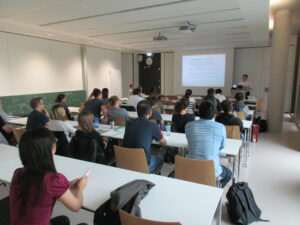
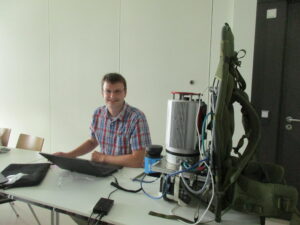
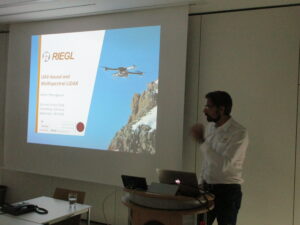
On the second day, PhD students associated with the 3D-TAIGER project (Kuei-Chia Chen, Kristina Koenig, Martin Hämmerle) presented their research progress regarding forest structure and vegetation feature analysis based on 3D geodata. With the presented results as a starting point, future work was discussed and follow-up ideas were developed.
The last and closing highlight of the summer school was a hands-on workshop introducing the multi-purpose LiDAR simulation framework for research, planning and training of laser scanning operations with airborne, ground-based mobile and stationary platforms ‘HELIOS’ developed and presented by Sebastian Bechtold.
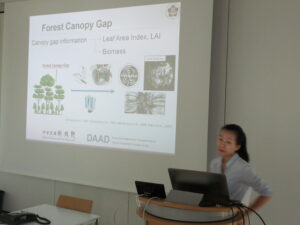
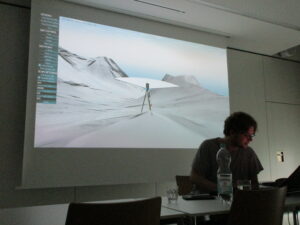
The project 3D-TAIGER is sponsored by DAAD with funding from BMBF and also by Heidelberg University (Dept. International Relations).
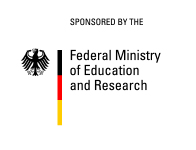
Furthermore, support is provided by the Taiwan Ministry of Science and Technology (MOST).
Many thanks to the Mathematikon administration (esp. Anne Paulski) for supporting the summer school with a perfect venue, and also to the helping hands in the background (Evelyn Schmitz, Ann-Kathrin Mannherz)!



